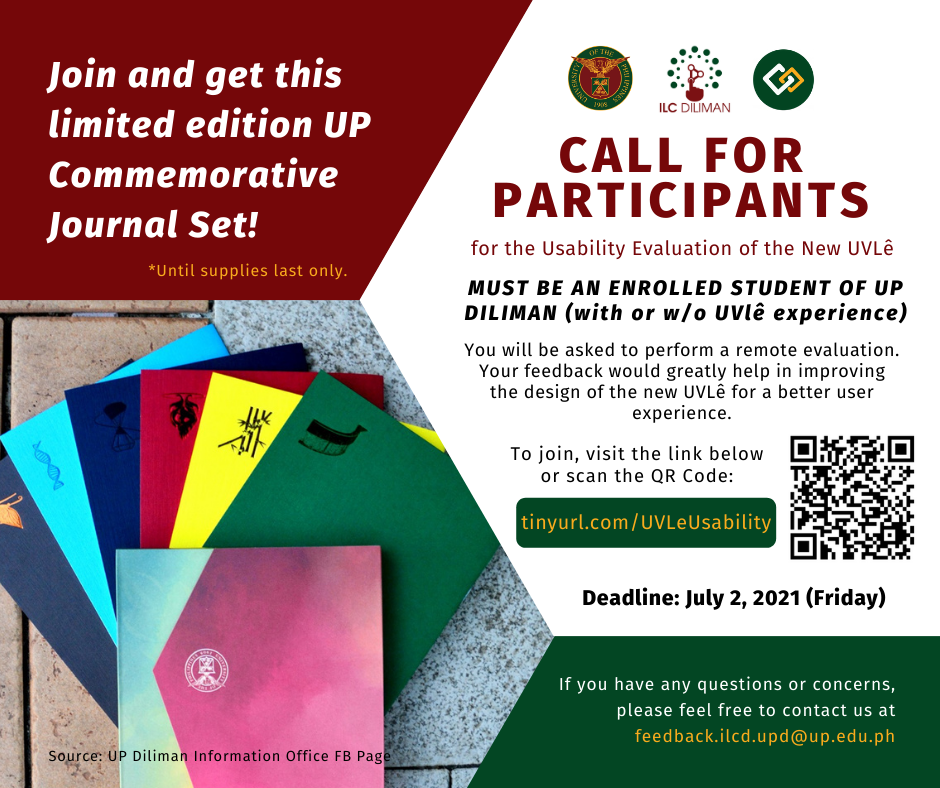Unavailable CRS-UVLe Integration
Unavailable CRS-UVLe Integration Announcement July 05, 2021 Dear UVLe users, The CRS-UVLe integration is currently unavailable. It has not been restored since the issues last March. Course creation and syncing of class lists in UVLe will have be done manually. To request for your course creation in UVLe and for enrollment of the students in the course, please follow these instructions: 1. Prepare an email with the following information/files: Course Number Course Name List of student emails to be enrolled in the course (in xlsx or csv, can be obtained thru CRS) 2. Send to any one of our helpdesk personnel thru ilcdhelpdesk.upd@up.edu.ph Rest assured that we are working on this integration for the new UVLe. For further assistance and/or immediate concerns, you may open a ticket through the ILCD Helpdesk (https://helpdesk.ilc.upd.edu.ph/), or directly reach the helpdesk personnel thru the email address above. Thank you very much for your support and understanding. UVLe Team




